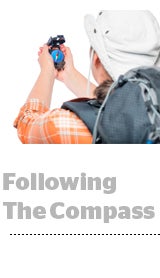 Apple’s announcement on Monday that its Safari desktop browser would block third-party tracking information by default worries the ad tech industry – even though Safari represents less than 5% of paid search clicks, according to data from performance marketing agency Merkle.
Apple’s announcement on Monday that its Safari desktop browser would block third-party tracking information by default worries the ad tech industry – even though Safari represents less than 5% of paid search clicks, according to data from performance marketing agency Merkle.
But not everyone is alarmed. The change is likely just another stepping stone in the long crossing to cookieless audience targeting, said James Chanter, associate media director at the WPP-owned media agency m/Six.
“I think the attention the news is getting is going to far outstrip the actual impact it will have on advertisers and agencies,” he said.
Apple’s new privacy controls do come with real hazards, though.
For one thing, it will create a blind spot for Safari desktop campaign analytics and attribution – which trace an individual’s path around the internet. And while Safari users are a minority, they are also a disproportionately strong consumer set.
So site owners can track return visitors using Safari, but they won’t be able to connect that user to activity on other sites or anything logged by tracking pixels.
Retargeters like Criteo, whose share prices dropped more than 10% after the news was announced, declined to comment. While investors don’t believe the dip is permanent, the bigger risk for Criteo is that Apple’s change will prompt its clients to think about the level of access they give to ad tech vendors, said one Criteo client speaking anonymously due to a nondisclosure agreement.
“Criteo sneaks in as a first-party tag picking up a return site visitor, but it compiles that into a central profile of users it tracks online,” she said. “Facebook and Google track users across their ad networks too, but does Criteo have actual connections to its clients’ return users in the way that Facebook or Google can credibly say, ‘This is a shared user’?”
According to Apple’s guidance on the policy, “A machine learning model is used to classify which top privately controlled domains have the ability to track the user cross-site, based on the collected statistics.” In other words, there aren’t just hard-and-fast rules dictating what is or is not allowed – Safari will be learning and making judgment calls about what’s acceptable.
Apple differentiates between first and third parties based on “whether the user has a relationship with that party,” said Josh Schwartz, head of product and engineering at Chartbeat.
For instance, Facebook’s tags track users who journey through its publisher ad network, but its targeting isn’t necessarily at risk, Schwartz said.
“The Apple methodology could see the relationship between Facebook and that user, in the form of regular return visits and an opted-in framework between that site, Facebook and the visitor, and allow that to stand,” he said.
Both Facebook and Google declined to comment.
Another concern for ad tech companies is Apple’s potential to create a cascade effect among other browser operators – and among consumers demanding baseline privacy standards. Apple’s decision to allow ad blockers into the App Store and iOS mobile web browsing in 2015 precipitated Google opening the Play Store and Chrome mobile browser to ad blocking and Samsung offering default mobile ad blocking.
“Since Safari has a small share of browser adoption, it is likely that advertisers will be able to reach potential consumers in other environments,” said Tony Zito, CEO of Rakuten Marketing. “But it will be a bigger problem the industry will need to tackle if other devices, browsers and platforms follow suit.”












